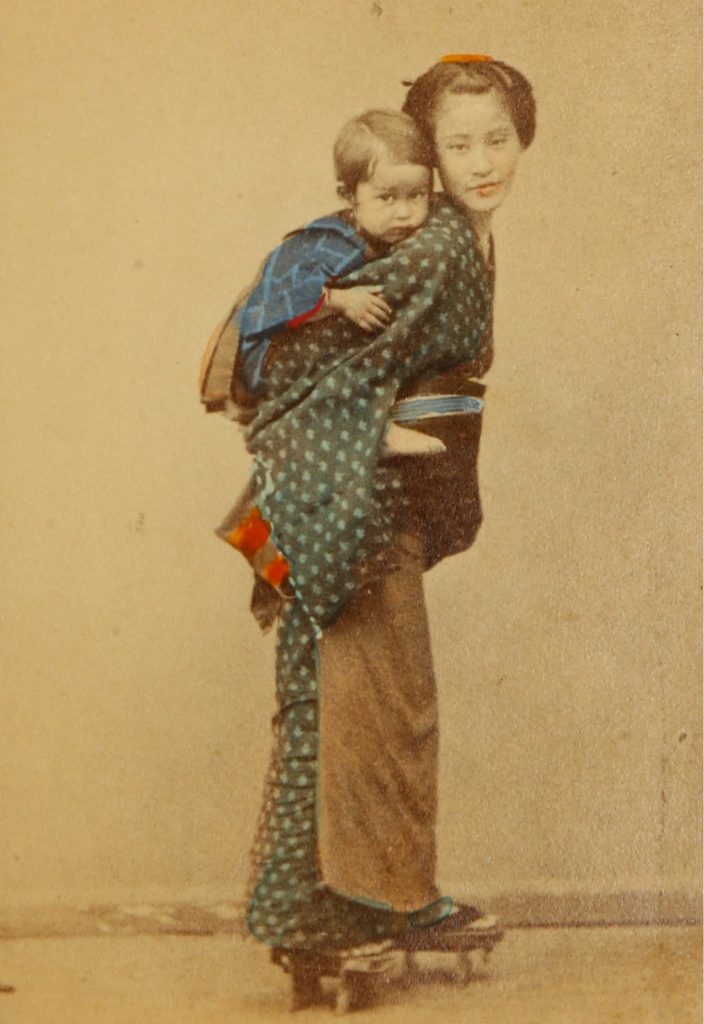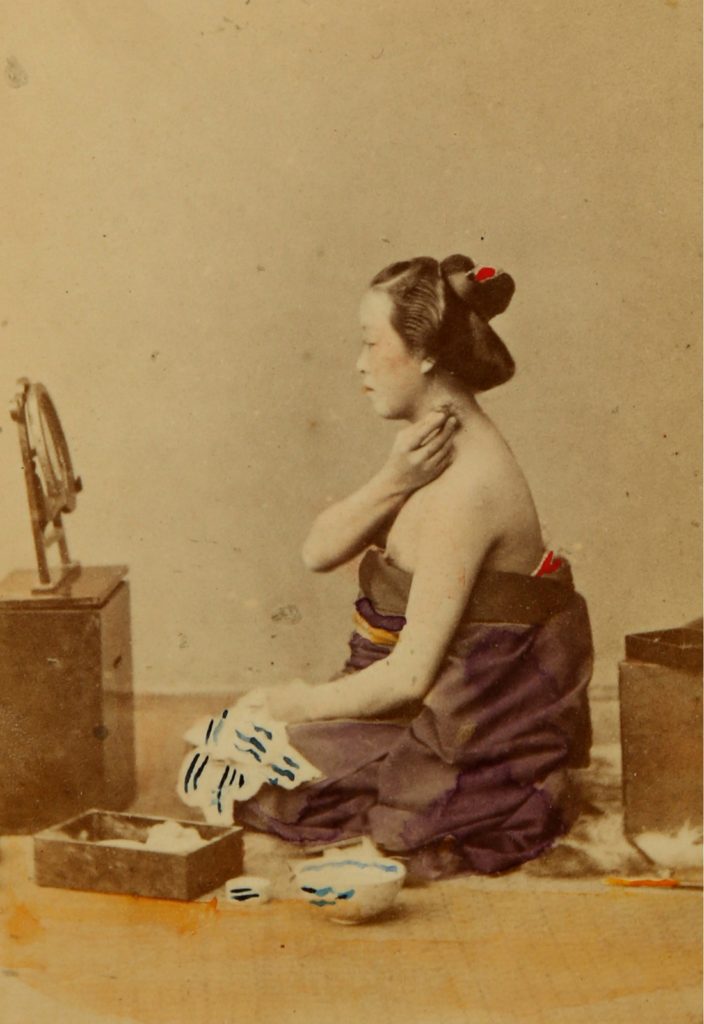Capturing Change: Felice Beato and the First Photographs of Japan
Few photographers have left behind a legacy as important or visually compelling as Felice Beato, one of the earliest Western photographers to work extensively in Asia. His images of Japan in the 19th century not only documented a nation in the midst of dramatic transformation, but also helped shape how Japan was perceived abroad during this pivotal time in its history.
Today, Beato’s photographs are highly prized by collectors of early photography, Asian art and visual history. His work offers an irreplaceable glimpse into a world that was rapidly disappearing — and is now only visible through the lens of photographers like him.

A rare Cartes-de-Visite album by Felice Beato. C.1863. Estimate: £2000 – 2500.
Who Was Felice Beato?
Born in the early 1830s, Felice Beato was an Italian-British photographer best known for his pioneering work in documentary photography. He captured a wide range of subjects, from war zones to formal portraits, and was among the first to photograph major conflicts including the Crimean War, the Indian Rebellion, and the Second Opium War.
In 1863, Beato arrived in Yokohama, Japan’s primary port open to foreign trade at the time. He would remain in Japan for more than two decades, establishing one of the country’s first photography studios and becoming one of the earliest commercial photographers in Asia. His images remain among the most detailed and sensitive records of 19th-century Japan.
Japan on the Brink of Change
Beato’s time in Japan coincided with a period of significant upheaval. Known as the Bakumatsu era, this was the final phase of the Tokugawa shogunate, which ended with the Meiji Restoration in 1868. As Japan transitioned from a feudal society into a modern industrial nation, Beato captured this transformation through the people, landscapes and customs he photographed.
Unlike later photographers who focused on staged studio portraits, Beato’s work was notable for its realism and its hand-coloured photographic prints, which added a painterly quality to the medium. He documented samurai, merchants, labourers and women in traditional dress, as well as temples, rural scenes and cityscapes.
The Significance of Cartes-de-Visite
Among the most collectable formats of Beato’s work are the cartes-de-visite — small photographic prints mounted on card, typically exchanged as calling cards. These were popular in the mid-19th century and were often collected in albums. Beato's cartes-de-visite stand out for their artistic quality and cultural richness, often featuring sensitive colouring and detailed compositions that reflect both technical skill and ethnographic interest.
Albums that survive intact are rare and highly sought after by collectors for their historical completeness and condition. They offer not just individual portraits but a cohesive visual narrative of a time and place now lost to history.
Why Collect Early Japanese Photography?
Early Japanese photography, particularly from the Bakumatsu and early Meiji periods, offers more than aesthetic appeal. These images are historical documents, preserving a visual record of cultural identities, landscapes and rituals that were about to vanish or transform under the pressures of modernisation and Western influence.
Collectors value:
Provenance and condition: Intact albums or well-preserved prints with clear attribution are especially desirable.
Subject matter: Portraits, daily life, and traditional customs hold strong appeal.
Hand-colouring: Many 19th-century Japanese photographs were coloured by hand, enhancing their value and beauty.
Named photographers: Works by Felice Beato, Kusakabe Kimbei and Baron Raimund von Stillfried are especially sought after.
Felice Beato’s Lasting Legacy
Beato’s work stands at the crossroads of photography, art and history. His photographs remain essential to any serious study of Japan’s modernisation, and his influence can be seen in both the Western understanding of Asia and the development of photography as an art form.
For collectors, Beato’s images offer an opportunity to own a piece of visual history that is as informative as it is evocative.
Do you own early Japanese photography or Meiji period works of art? Our Asian Art specialists would be delighted to offer a free and confidential valuation. Contact the department at asian@chiswickauctions.co.uk or submit an Online Valuation today. If you have works that may be suitable for auction, our team of specialists would be delighted to offer a complimentary valuation.